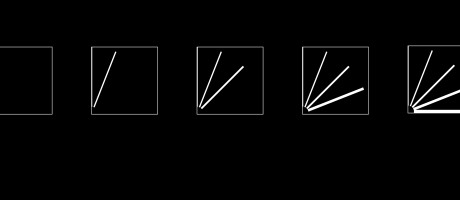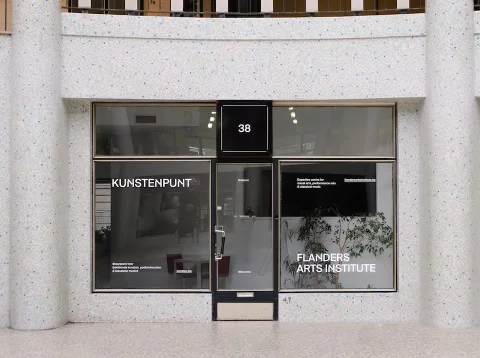
Landscape Sketch of the Arts: session about transition in the arts sector
Give your opinion and contribute to the Landscape Sketch of the Arts!
The Landscape Sketch of the Arts is a comprehensive analysis of Flanders' professional arts landscape that Flanders Arts Institute puts together at the start of each new political term. To make sure nothing is overlooked, we organise several sessions throughout 2024 to gather input from the sector, each time focusing on a different part of the arts field.
Flanders Arts Institute organised an open call for suggestions around un(der)exposed themes towards our Landscape Sketch of the Arts. This session was one of the submissions. Check out the other topics we are including in the process here.
Transition
In this session, we look at the current state of transition in the arts sector.
Transition, or change, starts from the realisation that our way of living and working must change to stop its disruptive effects on humans and the planet, such as social and cultural inequalities, structural exclusion, pressures on physical and mental health, and climate change. They are symptoms of man's impact on the planet that are deeply interconnected, and will only be solved with systemic change.
In the arts, we are openly critical of these forms of injustice in creations and programmes, but the way we work is equally exploitative and disruptive. Nevertheless, our sector strives for art that is accessible to artists and audiences on a local and international level, for fair and caring collaborations between art workers and institutions, a sustainable use of space, food, materials and transport, as well as protecting the freedom of artistic expression without unhealthy power relations.
Together, we explore the roots of that injustice and uncover the links between the negative symptoms, with a focus on justice, inclusiveness, solidarity and reparation. There are different models for working on transition, and what they have in common is the need for knowledge, time and collaboration.
This plenary session is facilitated by Katrien Voet, content contributor and inspirer at De Transformisten vzw.
Themes
In the morning, we will focus on thematic clusters that will be dealt with extensively in three working groups.
- The impact of working in the arts on the planet: how do we use space, materials, food and transport sustainably?
- The importance of inclusion and multi-voicedness: are artistic valuation frameworks and exclusionary mechanisms preventing access for artists and audiences, or hindering conversation and participation?
- Paradigm of the arts: do existing frameworks of thinking perpetuate certain power relations, and how does this affect talent development across the arts field?
After lunch, we will gather the insights from these working groups to arrive at a state of transition in the arts.
How are insights around particular experiments being shared? How are themes of transition connected and feasible to work on? How do we get beyond fighting symptoms? Is there a phased, longer-term perspective within which the transition can take place and is there support for it? What barriers need to be overcome and what incentives are needed? Are alliances with other sectors necessary? And what is the role of government, locally, nationally, but also internationally?
Where and when
Monday 28 October at 9:30, at Art Basics for Children (Maison ABC, Gaucheretplein 13, 1030 Schaerbeek), a 10 min walk to Brussels-North.
Registration
Want to take part? Then register via the button at the top right.
To register, we ask you to create an account on our website and choose a password. With your own account, you can always change your details and/or unsubscribe from the event. If you want to register for another event, you obviously do not have to make this again. Having problems creating an account? Then send an email to sofia@kunsten.be.
Compensation and thresholds
Flanders Arts Institute wants makers' voices to be heard more. We encourage financially strong organisations to bring in (an) artist(s) in addition to their own colleagues - either artistically or more behind the scenes - and provide remuneration for them. For freelance artists (who are not on the payroll of an arts organisation and for whom participation is therefore unpaid) Flanders Arts Institute provides a volunteer allowance. You can indicate this in the practical confirmation e-mail.
Furthermore, we want to help overcome any barriers for participants, e.g. through hybrid participation for people who have difficulty getting physically on site, food preferences or childcare. Please let us know how we can accommodate you via the same confirmation email.
To enable a safe conversation, Flanders Arts Institute commits to keeping identifiable statements within the conversation and to anonymously include these insights in the report.
